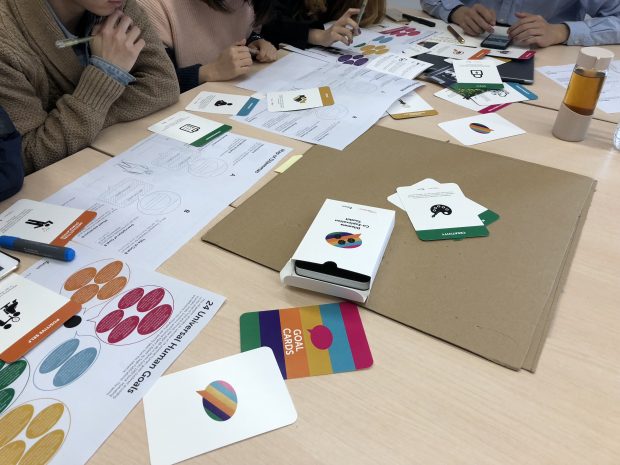Do you find it challenging to identify what your client or end-users really want? This toolkit helps to structure such thought processes and conversations in a workshop setting in which designers, end-users, and other relevant stakeholders work together to identify and agree upon a meaningful starting point for a project.
The dilemma-finding toolkit uses the set of universal human goals as a starting point to formulate dilemmas. This set of goals – such as belonging, creativity, or entertainment – is adopted from the work of psychology researcher Martin Ford and transformed into a design tool to facilitate discussing goals and potential dilemmas that can form meaningful starting points for a design project.
The toolkit includes 24 goal cards and an infographic that gives an overview of all goals. The instructions booklet provides step-by-step directions to formulate, discuss, and debate potential stakeholder goals and dilemmas.

Email me at d.ozkaramanli[a]utwente.nl if you want to explore this toolkit in a workshop setting and get hands-on experience with dilemma-driven design in one of your projects.
Note that this toolkit is one of the outputs of Deger Ozkaramanli’s PhD project. If you feel the need to better understand certain aspects, please refer to the PhD thesis titled Me against myself: Addressing personal dilemmas through design, or its complementary booklet, The Book of Dilemmas for Designers.
Reference
Ozkaramanli, D., Desmet, P. M. A., & Özcan, E. (2017). Dilemma Co-Exploration Toolkit. Delft, Delft University of Technology. ISBN: 9789492516374.



